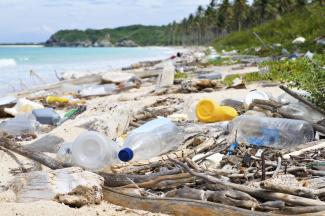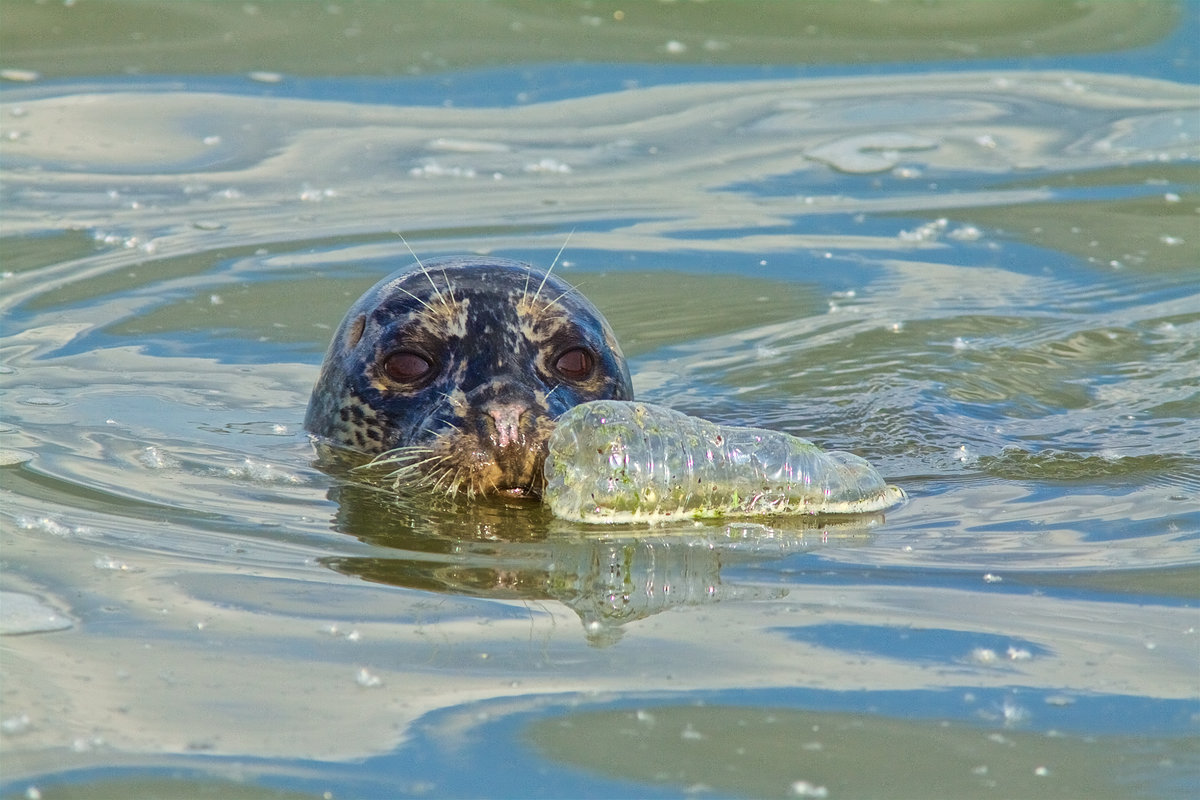
Do the preparation task first. Then read the text and do the exercises.
Preparation

A Plastic Ocean
A Plastic Ocean is a film to make you think. Think, and then act. We need to take action on our dependence on plastic. We've been producing plastic in huge quantities since the 1940s. Drink bottles, shopping bags, toiletries and even clothes are made with plastic. 1) _____. What happens to all the rest? This is the question the film A Plastic Ocean answers. It is a documentary that looks at the impact that plastic waste has on the environment. Spoiler alert: the impact is devastating.
The film begins as a journey to film the largest animal on the planet, the blue whale. But during the journey the filmmakers (journalist Craig Leeson and environmental activist Tanya Streeter) make the shocking discovery of a huge, thick layer of plastic floating in the middle of the Indian Ocean. 2) _____. In total, they visited 20 locations around the world during the four years it took them to make the film. The documentary premiered in 2016, and is now on streaming services such as Netflix.
It's very clear that a lot of research went into the film. There are beautiful shots of the seas and marine life. 3) _____. We see how marine species are being killed by all the plastic we are dumping in the ocean. The message about our use of plastic is painfully obvious.
4) _____. In the second half, the filmmakers look at what we can do to reverse the tide of plastic flowing around the world. They present short-term and long-term solutions. These include avoiding plastic containers and 'single-use' plastic products as much as possible. Reuse your plastic bags and recycle as much as you can. The filmmakers also stress the need for governments to work more on recycling programmes, and look at how technology is developing that can convert plastic into fuel.
We make a staggering amount of plastic. In terms of plastic bags alone, we use five hundred billion worldwide annually. Over 300 million tons of plastic are produced every year, and at least 8 million of those are dumped into the oceans. 5) _____. Once you've seen A Plastic Ocean, you'll realise the time is now and we all have a role to play.




I recommend watching the documentary films: "Mission Blue", "Seaspiracy" and "Chassing Coral".
All documentary films can found in Netflix.
"Mission Blue" is about a documenary about oceanographer Sylvia Earle's campaign to save the planet's oceans from threats such as toxic waste and overfishing.
"Seaspiracy" is about a filmmaker in love with the ocean who sets out to document the damage humans cause to marine species and makes a shocking discovery, uncovering alarming global corruption.
Finally, you have to watch the documentary "Chassing Coral". It's both shocking and painfull, as divers, scientists, and photographers from around the world unite and organize an epic underwater campaign to document the disappearance of coral reefs.
The three documentaries show very well that we have to act now; tomorrow may be too late.
I would like to recommend "Planet Earth", which films the everything on the earth, animals, environment,ocean,plants...it tells people how species on earth coexist. You can feel the amazing and gorgeous scenes, the miracle of life.
Hello, I recommend "My octopus teacher" on Netflix. It is a window to see how animals and humans could coexist.
Wow! Its very good test, and i think, its help us to practice and make better. Thanks for all
I recommend the documentary "buy now" by Netflix, this documentary shot me about the pain that we do to earth, and the important to importance when buying
where is text to read, there is only a picture
Hello Antoo,
The text should be visible just under the picture of the otter in the section headed 'Reading text'. I've checked the page and it appears to be working correctly. If you can't see it then there is either a compatibility issue with your device or browser or something is locally blocking certain content. Check your settings (firewall, for example) and maybe try using a different device or different browswer to see if this solves the problem.
Peter
The LearnEnglish Team
Hello Peter,
Yes, there does seem to be a compatibility issue with the page caused by browser extensions. Users should try disabling their adblocker if they have one. Alternatively, download the worksheet.
Hope that helps,
Jonathan
Just open worksheet with an extension.
Thankd